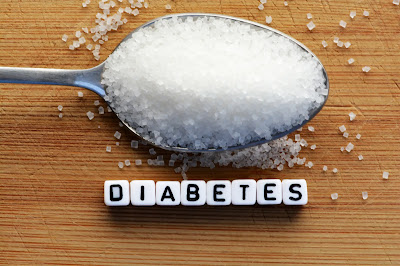Early Signs Of Diabetes And When To Get Tested For Diabetes
What is diabetes?
Diabetes is a chronic condition that affects how your body converts food into energy. When you eat, your body breaks down most of the food into sugar (glucose), which then enters your bloodstream. In response, your pancreas releases insulin, a hormone that acts like a key to help glucose enter your cells and provide energy.
However, when diabetes occurs, your body either doesn’t make enough insulin or can't use it effectively, leading to elevated blood sugar levels. Over time, this can result in serious health complications if not properly managed.
The 3 Types of Diabetes
This occurs when the body doesn't produce insulin at all, causing blood sugar levels to rise dangerously. It's often diagnosed in childhood or adolescence. In this case, the body becomes resistant to insulin or doesn't produce enough of it, leading to persistently high blood sugar levels. It’s the most common type and often linked to lifestyle factors. Some women develop high blood sugar levels during pregnancy, which can affect both mother and baby. This usually resolves after childbirth but may increase the risk of developing Type 2 diabetes later in life.Early Signs of Diabetes
Recognizing the early symptoms of diabetes can help in getting a timely diagnosis and treatment. Some of the common signs include:
Frequent urination – High blood sugar levels force your kidneys to work overtime to remove excess glucose, leading to increased trips to the bathroom.
Excessive thirst – With your kidneys using more water to process the sugar, your body craves more fluids to stay hydrated.
Fatigue – High blood sugar levels make it harder for your cells to absorb energy, leaving you feeling constantly drained.
Blurred vision – Fluctuating blood sugar levels can cause fluid to build up in the eye lens, leading to temporary vision disturbances.
Persistent hunger – Despite eating, your body’s cells may not be receiving enough glucose, leaving you feeling hungry even after meals.
Unexplained weight loss – When glucose isn't available for energy, your body starts breaking down fat and muscle for fuel, leading to weight loss.
Slow-healing wounds – High sugar levels can weaken blood vessels and slow down the body's ability to heal cuts and bruises.
Numbness in hands and feet – Nerve damage (diabetic neuropathy) due to prolonged high blood sugar can cause tingling, pain, or numbness in the extremities.
Recurring yeast infections – Excess sugar in the body provides an ideal environment for yeast to thrive, leading to frequent infections, especially in warm, moist areas like the mouth and armpits.
These symptoms are common to all three types of diabetes. If you're experiencing any of them, it's essential to seek medical advice promptly.
When to Get Tested for Diabetes
Getting tested early can help prevent complications. Here's when you should consider screening:
Type 1 Diabetes:
If you're experiencing symptoms such as extreme thirst, unexplained weight loss, or persistent fatigue, see your doctor right away. Early diagnosis can prevent serious health complications.
Type 2 Diabetes:
- Recommended screening if you're over 44 years old.
- If you’re between 16-44 and are overweight or obese.
- Women who had gestational diabetes during pregnancy should also get tested regularly.
Gestational Diabetes:
- All pregnant women should undergo a glucose challenge test between 24 and 28 weeks of pregnancy.
- If you experience any of the symptoms mentioned above while pregnant, consult your doctor.
Managing Diabetes Effectively
Once diagnosed, managing diabetes involves a combination of lifestyle changes and medical interventions. Some effective strategies include:
- Regular exercise: Physical activity helps lower blood sugar levels and boosts insulin sensitivity.
- Balanced diet: Consuming whole foods, fiber-rich vegetables, and healthy fats can regulate blood sugar.
- Medication management: Insulin or oral medications might be necessary to control glucose levels.
- Consistent monitoring: Keeping track of blood sugar levels helps you understand how your body responds to different foods and activities.
Recommended Amazon Products for Diabetes Management
To help manage diabetes effectively, consider these useful products:
- Contour Next Blood Glucose Monitoring System – A reliable and easy-to-use blood sugar testing kit.
- NutriBullet Pro Blender – Ideal for making diabetes-friendly smoothies.
- Dr. Scholl’s Diabetes and Circulatory Socks – Comfortable socks designed to improve circulation and reduce discomfort.
Related Content You May Find Helpful
- The Importance of Sleep Quality in Blood Sugar Regulation
- Alkaline Diets for Diabetics: Fact or Fiction?
These are the questions the post answers
- What are the early warning signs of diabetes?
- How can I reduce my risk of developing Type 2 diabetes?
(Post Updated to improve readability and provide additional insights.)




Comments
Post a Comment
Share your views